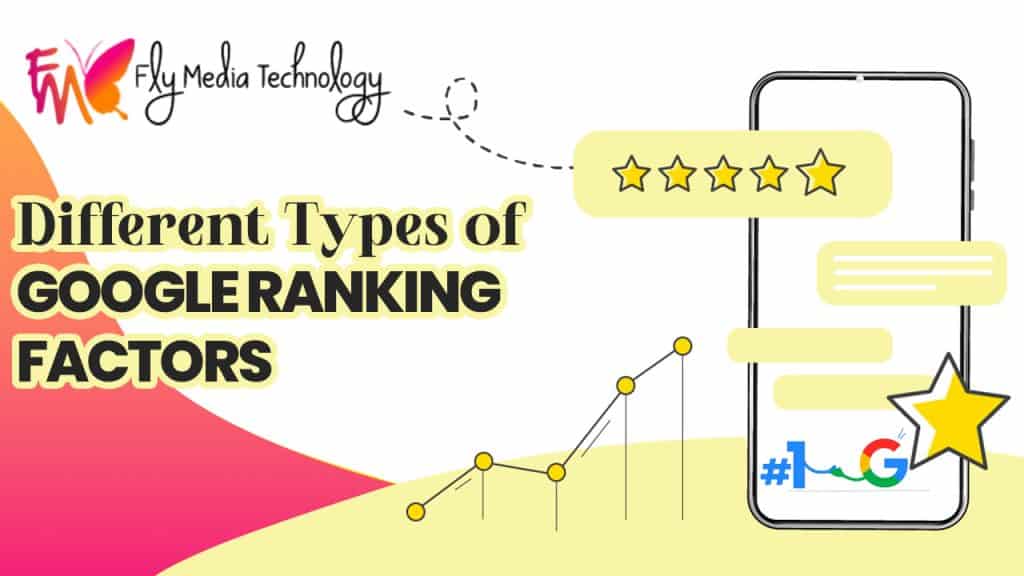Google Trends: How to Use it For SEO and Content Marketing

![]()
In the ever-evolving landscape of digital marketing. Google Trends has emerged as a valuable tool for savvy marketers and SEO professionals, providing insights that can shape strategies, boost website traffic, and enhance content marketing campaigns. In this article. We will delve into what Google Trends is, why it matters, and how you can use it effectively to supercharge your SEO and content marketing. Understanding Google Trends Google Trends is a free and user-friendly tool that provides data on how frequently specific search terms or keywords are queried on Google. It offers insights into the popularity of a keyword, showing trends over time and geographic locations. Google Trends can help you identify rising or declining topics, seasonal trends, and regional preferences. Why Google Trends Matters for SEO Keyword Research and Targeting Google Trends allows you to discover which keywords are currently trending. By incorporating these trending keywords into your content, you can align your website with the latest search trends, increasing the likelihood of ranking higher in search results. Content Planning With the knowledge of trending topics, you can plan your content calendar more effectively. Creating content around what people are actively searching for boosts your chances of attracting a large audience. Seasonal and Cyclical Insights GOogle Trends helps you identify seasonally relevant keywords. For instance, if you are in the retail industry, you can pinpoint when people start searching for holiday gifts or summer essentials, enabling you to prepare your content and SEO strategy in advance. Comparative Analysis It allows you to compare the popularity of multiple keywords, helping you decide which ones to prioritize in your content and SEO efforts. This can be especially valuable in highly competitive industries. Geographical Targeting Google Trends offer data on the geographic regions where specific keywords are most popular. If your business caters to different locations, this information can guide your localized SEO strategies. Using Google Trends for SEO and Content Marketing Now, let’s explore practical steps for incorporating Google Trends into your SEO and content marketing strategies; Keyword Research Start by entering a broad keyword related to your niche in Google Trends. You will see a graph displaying the keyword’s search volume over time. Look for keywords with upward trends, as these are more likely to drive organic traffic. You can also filter the results by location to target specific regions. Content Ideation Use Google Trends to brainstorm content ideas. Look for emerging trends or related queries. For example, if you run a healthy blog and see that “plant-based diet” is gaining popularity, consider creating content about the benefits, recipes, or meal plans related to this topic. Seasonal Optimization Identify keywords that have recurring peaks during certain times of the year. For example, if you operate an e-commerce site, you can anticipate the holiday shopping season by creating seasonal content and optimizing your product listings for relevant keywords. Monitoring Competitors Don’t just limit your analysis to your keywords. Input your competitors’ brand names or industry-related terms into Google Trends. This can reveal insights about the popularity of your competitors and allow you to fine-tune your SEO and content strategies accordingly. Stay Informed Google Trends is not a one-timing resource; it is an ongoing tool. Make it a habit to regularly check it, staying attuned to changes and opportunities in your industry. Google Trends will help you adapt your strategies as trends evolve. long-Term Strategy While trending keywords are important, don’t forget about evergreen content. Balance your content strategy with a mix of both to ensure that your website continues to attract organic traffic even when trends shift. Quality over quantity Don’t compromise the quality of your content for the sake of riding a trend. While it is important to incorporate trending keywords, endure that your content provides genuine value to your audience. You can stay ahead in the competitive digital landscape and achieve better results for your website and business with Google Trends. so, why wait? Start exploring the trends today and watch your SEO and content marketing efforts soar.
What is the Ranking Factor of Google?

![]()
For determining the website ranking, it is the result of the search. The details of the Google algorithm are involved that influence the ranking of websites. These factors are often referred to as Google ranking factors. It is important to note that Google considers hundreds of factors, and the weight of each factor can vary. What is the definition of the Google ranking factor? A Google ranking factor is a small piece of information that the users of Google use to decide. It is used to check the specific search query of webpage answers. Digital marketing in Ludhiana is very famous for increasing business. What are the different types of ranking factors of Google? There are different types of ranking factors in Google. High-quality content: You have heard the old SEO saying content is king. The quality of your content has a huge impact in the case of Google ranking factors. If you can create content that is unique, fresh, and fruitful for users, then Google will give you a high rank when it is on the search engine results page. It is unique, original and valuable content. Another thing to increase the quality of your content is to stay up to date with the concept of the regular era. Content length is an easy ranking factor to measure and understand. And another easy guideline to remember is that longer is generally better. It is used for the check of the content structure and organization. Backlinks: The quality of content is the next critical ranking of Google factor. The Google ranking factors are backlinks, incoming skills, and many other websites that have a huge influence on the Google ranking. The web pages with fewer backlinks get much less organic traffic because they are buried in the search results. Search intent and content relevancy: Another crucial ranking factor for Google is how well your content matches a user’s search intent. It is a term that declares what the user is trying to begin with a search. Loading speed of website: The speed of the website is a metric that Google considers critical for user experience on your site. It measures your website’s overall speed and responsiveness, along with the loading speed of different elements like fonts and images. Keyword optimization: Besides publishing original content and getting backlinks, one of the most well-known ranking factors is the use of keywords on websites. Keywords should match the search terms users type into search engines. Website structure: While keyword optimization is important, another factor you should consider is your site’s structure, especially if you’re launching a new site. Your website’s architecture is important from a crawling and indexing perspective. A simple structure, without too many subdirectories, can aid Google crawlers and indexing your website and its pages. Website security: Along with site architecture, your site security is now a key Google ranking factor. One of the biggest requirements is to ensure your site is using HTTPS protocol, as this encrypts the data between your website and a user’s browser. Google is one of the best and most special search engines. All human beings use it. Digital Marketing Company in Sydney is very famous because it is one of the best platforms for online marketing.
Decoding Google Ranking Factors: What Really Matters Right Now

![]()
In the dynamic realm of online availability, understanding Google Ranking factors is crucial for companies and individuals seeking to have a notable online impression. These days, a lot of major variables play an essential part in where a website appears on Google’s search engine results pages (SERPs). Content quality and relevance When you are writing your content for your website, you can write your content well, with information and relevance. Google helps you to create relevant content, which is also reliable to the user’s query. When your website has informative, high-quality, and attractive material, it has a higher chance of ranking highly. Make sure the material you create serves your audience’s needs and is in line with their intentions. Mobile-friendliness Nowadays, a lot of individuals use smartphones for searching when they want to know. It supports increasing your website ranking in a shorter time. Google highlights mobile-friendly design as a key ranking requirement due to the growing popularity of mobile devices. When your content shows on a mobile device, you can ensure the improvement of your website for a range of screen sizes. This technique helps to attract mobile users to your content. It helps to increase traffic on your website. Page speed In the rapidly evolving online nature, consumers demand immediate access to data. Your page speed strongly impacts the user experience. When your page loads slowly, it can impact your website’s search engine ranking. Google update tools help your sites load fast on any device so that when visitors visit your sites, they get relevant in a short time. It also makes use of browser cache, improves the code and decreases the size of images. Backlinks quality and diversity Backlinks from reputable as well as applicable sites are still a powerful ranking factor. But now, the focus is more on quality and quantity. Change up the links from different domains in your backlinks profile to give it credibility. User experience Google gives preferences to websites that offer an enjoyable user experience. Elements, including simple navigation and a well-organized layout, can achieve a better user experience. Longer dwell periods are encouraged by a smooth user experience, which signals meaning to search engines. Security (HTTPS) Google prefers secure websites. It has been proven to be a ranking element. It can increase user trust. Google tools help to encrypt and create a safer connection, so make sure your website has an SSL certificate. Core web vitals The user-centric performance metrics of loading speed, interactivity, and visual stability are the main focus of Google’s core web vitals. Improving these elements can affect your site ranking. It is essential for satisfying user experience. Page experience update Google updated its page experience procedure, adding core web vitals to its list of ranking factors. This update takes into account things like HTTPS usage, secure browsing, mobile friendliness, and harmful ad restrictions. Maintaining compliance with these elements improves the likelihood that your websites will rank highly. Content freshness When you add new content and update your website regularly, tell Google that it is relevant and active. It helps to maintain or improve your ranking positions and requires you to keep your content updated. Social signals There is evidence that social media presence indirectly affects SEO, even though its direct impact on ranking is up for debate. The authority of your website may increase if you produce more backlinks from shareable content. It takes time to become an expert in Google ranking actors. Maintaining your success online requires keeping up with techniques and changes and modifying your approach accordingly.
Key Ranking Factors That Involved in 2023

![]()
In 2023, there have been some meaningful changes to how web pages occur in Google and other search engines. These changes impact the position of your website in search results. It is important to be aware of the key ranking factors that have been involved and are shaping the SEO landscape. Page speed and mobile friendliness Google focuses a lot on how fast your content loads on your website. If your content loads slowly. In that case, visitors get away from your pages and find other pages that load fast and get information. If your website loads fast, then you get more clients on your pages. So your website gets highly ranked. But your content is not mobile friendly, which means your content does not open on mobile devices easily, and your sites do not get more visitors, so your site does not rank in Google. Good content You can post your content in which you have provided valuable information. And also, you can use understandable language. Google is getting better at understanding what is good and what is not. Suppose you do not provide reliable information on your page with understandable language. In that case, individuals can not read your informative content, and they find other sources where they can easily understand and get the knowledge. These things affect your website ranking. Answering questions Search engines now focus on giving direct answers to people’s questions. Suppose your content answers those questions well. It helps your site rank higher. Trusted information Your website must be trustworthy because Google checks your content to be reliable to visitors. If your content is not informative, then your website does not get ranked. You can write your content reliably so that visitors can open your sites. They get more information through your content. They get knowledge and things. In that case, they often come to your website. It helps to get more traffic on your sites. Quality backlinks When you add backlinks to your websites, it helps to get more clients on your websites. If you use more quantities of backlinks in your content, then it can get low-ranked. You can put fewer backlinks to your content, which is reliable and valuable. If you freely add backlinks, it can cause a low ranking. Local and personalized results Local SEO elements have developed when you adapt to individualized search results. It provides a more personalized outcome. Google takes into account a user’s location, search history and requirements. Local firms should focus on user personalization and local search performance. User Engagement Google identifies how visitors are attracted to your sites. They click on it and stay for a while. That is good for your site’s ranking. It also helps to know your content has excellent titles and descriptions, which make it interesting. Website security If you want to secure your website, then you can use HTTPS functions. It is important. It provides your website security. Voice search Often, individuals use voice commands to find any content. You can use it in your voice activation. So that people give commands and they easily get information through your content. It helps to get your content page a high ranking. Videos You can also add relevant videos to your website. It helps to get a high rank in Google and also in video searches. AI-generated content AI tools generate reliable content. You can be careful to maintain that it is high quality and human-like. Google was checking for this.
How to Improve Your Site Ranking

![]()
Website ranking offers a website’s position in search engine result pages for determined keywords. Google, Bing, and Yahoo are search engines where you use complex algorithms to specify the relevance and quality of pages when your website gets a high rank by the appearance of high search results. If you want your site to get a high rank in Google, then you improve your content when you write valuable and relevant content, and then your site gets more visitors and gets the knowledge you provide. Tips to improve your site ranking Publish relevant content When you write valuable and relevant content, your sites rank. If your data is irrelevant or unuseful, your site doesn’t rank. Google removed your site from the search engine. When you do SEO Agency, the quality of content increases the traffic to your site. Which helps to improve your site Keywords When you write reliable content, keywords help to identify and target the content. Another word means relevant keywords help search engines about your site and under information and data. Keywords are based on the search engine, and you find the related term as a result. Suppose you search for pet cat toys and see keywords like pet cat toys or pet supplies. You can write your keyword according to your trends site and how people often search the content. Multiple keywords If you write a content website, then your site does not immediately get a ranking in search engines by multiple keywords. If you want your website to get a ranking with multiple keywords, then you make a separate website. Placing keyword When you make your site user-friendly, then your site gets a high ranking in search engines. When you write relevant content that uses readability subheadings, you add keywords according to your content. It is naturally reliable. Your site will drop the ranking if you do not add reliable keywords. Content When you add relevant titles, URL links, and headings that impact the search engine, do not forget to use bold for subheadings and keywords so that search engines easily target your content. But do not overdo it like you bold every content. In that case, the search doesn’t understand your data and information properly. When you write your content, you use simple and natural writing. Update your content timely. When you write the content on your site, you update your data on time. Therefore, search engines indicate that Google and visitors. Metadata If you write relevant and valuable content on your page, search engines use metadata for Google algorithms to make your content understandable for visitors. Metadata creates the context that highlights the content of your page. If metadata is not used on your page, then your Google search engines highlight your content. In that case, your site does not get a high ranking. Title metadata helps to show your content at the top of the browser. Descriptive metadata helps to understand your content and create more visitors to your site page. Keyword metadata is rarely on the position ranking in search engines. Attached is a link to your site When you attach links to your website page, they locate easily and attract more visitors. If your website has valuable content, using the right keywords on your page, then your site gets a high rank in search engines. If you always use a descriptive link with the keyword, it not only improves your site. When you add valuable content to your page and show it without any disability, then search engines give the position rank. Use alt tags When you add images and video in content, then you use alt tags. Because alt tags help to show your video and pictures in any damage, they also help search engines locate your site or pages. It benefits those who read your page in the browser and screen readers. When you write reliable content on your site page, you want your site to get high traffic on Google and then contact the Best Digital Marketing Agency in Moonah. They help to gain traffic and sales through the internet. When more people visit your site, then your site gets a high-ranking position.
Importance of Google Reviews for Consumers and Businesses

![]()
Now business models are changed. Google reviews affect your business too much, as well as consumers. There is no doubt consumers depend on Google reviews. Due to the company’s online presence, interactions with the consumer and the providers have changed a lot. People are getting smarter day by day by using Google for any purchase. No one on the internet doesn’t read Google reviews before buying certain products. Importance of the Google Reviews: If you’re doing any business and have your online website for the digital presence of your shop and the products, then positive Google reviews can boost your web page or business. And negative ones can make your business go in the trash. Google reviews are a kind of social proof, influencing the interested consumer to specific businesses. Ranking in Google feed: Suppose your webpage/business does not appear on the first page of the Google search feed. It means people need to learn about your business even though you’re on a digital platform. How to rank a page in google feed: It would help to improve your SEO rating to appear in the Google search feed. The more relevant SEO, the more people interact with your site and business. Increase trust: Positive Google reviews can build the trust of a consumer toward the business. There are around 90% of a particular age group trust online reviews. If there is one genuine and positive review on your website/business, they will get automatically increased by a recommendation of the person to their family and friends. This will organically increase your positive Google reviews and your chance to appear in your Google search feed. Increase CTR: One of the most suitable things about Google reviews is their organically increasing CTR. It means when people search about the product you’re selling, your site appears on the first page of the Google search feed, and people are most likely to click and visit your site more than usual due to good reviews on Google. This works as a loop for the webpage or your business, and its impact is very positive for the webpage or the company. Visitor time on site: Online reviews help google to make the meetings relevant to consumers on the business/webpage. Google reviews increase their time on your site and change the buyer’s mind. If a business has low reviews on Google, the buyer will not consider going there and purchasing from them. On average, a user reads three or four reviews before visiting the site. They tend to read more if needed. That’s how they increase the time on the website. This time spent on your website positively impacts Google Analytics for your site’s relevancy to the particular search. Keyword Targeting: We all use specific keywords for searching for particular things on Google. Try to figure out the same thing about your product, services, and other things you sell or do online. The more positive Google reviews, the more chance for your website to be seen by the user searching just you. Conclusion: Getting positive Google reviews is not a piece of cake. You should seek help from any well-established online review management system. It is an essential part of your business to increase trust, credibility, and consumer visibility. Suppose you still need clarification and need to learn how to collect positive Google reviews. Just ask Flymedia Technologies for all your solutions related to digital marketing.
Maximizing Your Online Presence with Google Maps Ranking Strategies

![]()
Having a strong online presence in the present digital world is vital for businesses to flourish. A professional website designing can make all the difference in creating an effective online presence. With regard to local search and attracting in clients in your area, Google Maps is an amazing asset. By improving your Google Maps ranking, you can essentially improve your online visibility and drive more traffic to your business. In this blog post, we will investigate strategies to boost your online presence utilizing Google Maps, assisting you with standing out in the cutthroat digital landscape. Optimize Your Google My Business (GMB) Listing: Google My Business is the core of your Google Maps web presence. Ensure that your GMB listing is thorough and up to date, with accurate information like as your company name, address, phone number, website URL, and business hours. Include high-quality photographs that highlight your products, services, or location, giving potential buyers a taste of what you have to offer. Encourage Positive Reviews: Positive reviews not only increase your trustworthiness, but they also help you rank higher on Google Maps. Encourage happy customers to post reviews on your Google My Business listing. Respond quickly to both positive and negative reviews to demonstrate your dedication to client satisfaction. Engaging with customers demonstrates that you respect their input, which can boost your reputation and promote more reviews. Localize Your Website: Optimise your website for local searches to increase your online visibility. Include location-specific keywords, such as your city or region, in the content, meta tags, headings, and URLs of your website. Create distinct landing pages for each region you serve, with important information suited to each. This targeted approach communicates to search engines and potential clients that you are relevant to their specific location. Build NAP Consistency: NAP is an abbreviation for Name, Address, and Phone Number. When it comes to NAP information across your online presence, consistency is essential. Make sure your NAP information is consistent and correct on your website, social media profiles, online directories, and everywhere else your business is posted. Incorrect or inconsistent information might cause confusion among search engines and potential customers, lowering your Google Maps ranking. Utilize Local Business Directories: Listing your company in respected local business directories will dramatically boost your online presence and Google Maps rating. Investigate and submit your company’s information to relevant directories including Yelp, Yellow Pages, and industry-specific directories. Check that your NAP information and website URL are consistent throughout various directories. Leverage Online Citations: Citations are mentions of your company’s name, address, and phone number on other websites, even if they do not include a link to your site. Seek out ways to receive online citations from authoritative and relevant websites such as local newspapers, industry blogs, and online magazines. These citations increase not only your visibility but also your reputation and Google Maps rating. Conclusion By carrying out these viable strategies, you can amplify your online presence and further develop your Google Maps ranking. Improve your Google My Business listing, encourage positive reviews, localize your website, maintain NAP consistency, leverage local directories and online citations, and prioritize mobile optimization. At Flymedia Tech we have expertise in digital marketing in Ludhiana. Our expert team can assist you with carrying out these strategies and enhancing your Google Maps ranking to support your online presence.
A Step-by-Step Guide to Higher Search Engine Rankings 2023

![]()
In today’s digital world, establishing a strong online presence is essential for businesses. To stand out from the competition and attract more users to your website, it is important to accomplish higher Google search engine rankings. In this blog post, we will investigate effective strategies to assist you with ranking higher on Google and driving organic traffic to your website. Whether you’re a small business owner, or somebody interested in website designing or digital marketing, these tips will assist you with optimizing your online presence. Conduct Keyword Research: Start by searching and identifying relevant keywords that your target users are likely to search for. Tools like Google Keyword Planner and SEMrush can assist you in tracking down keywords with high search volume and low competition. Integrate these keywords strategically into your website content, including titles, headings, meta tags, and body text, to indicate to Google what’s going on with your website. Optimize Your Website Design: Website design play an essential part in search engine rankings. Ensure your website is versatile, as Google focuses on mobile-responsive sites. Enhance your website’s loading speed by optimizing images, minifying code, and leveraging browser caching. Create High-Quality and Relevant Content: Content is the king with regards to positioning higher on Google. Create useful, effective, and unique content that takes special care of your target audience’s requirements. Integrate your picked keywords organically throughout your content, but stay away from keyword stuffing, as it can hurt your rankings. Build High-Quality Backlinks: Backlinks, or inbound links from other legitimate websites, are essential for working on your website’s authority and credibility according to search engines. Look for opportunities to procure backlinks from relevant and trustworthy sources. Guest blogging, reaching out to industry influencers, and participating in online forums or communities can assist you with building valuable backlinks. Optimize for Local SEO: If you’re focusing on a particular geographic region like Ludhiana, optimizing your website for local search engine enhancement (SEO) is important. Include your area for your website’s meta tags, headings, and content. Claim and optimize your business profile on Google My Business, ensuring exact and updated information, like, your address, phone number, and business hours. Leverage Social Media and Digital Marketing: In the present digital age, social media presence is essential for online achievement. Improve your website and content through different social media platforms relevant to your target users. Engage with your followers, respond to comments and messages, and share valuable content regularly. Conclusion By following these step-by-step strategies, you can improve your website’s visibility and move higher on Google’s search engine rankings. Ensure that SEO is a continuous cycle that requires consistent exertion and observation. Stay updated with the latest trends and algorithm changes, implement your strategies accordingly, and keep giving valuable content and a reliable user experience. Flymedia Technology is a renowned and creative development company that offers a range of digital solutions for organizations to work on their online presence and reach their target users. With commitment and the right approach to web designing and digital marketing in Ludhiana, you can open the maximum potential of your online presence and drive organic traffic to your website.




